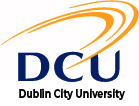BSc in Genetics and Cell Biology
Key Points
Discoveries in genetics and cell biology are opening a new era of understanding, both of ourselves and the world around us. Genetics give us insight into what contributes to our development and individuality, and when this knowledge is combined with cell biology, we can explore exciting scientific applications that benefit all of society.
Our better understanding of the genetic basis of life has opened up approaches to research, diagnosis, and treatment of disease. As a result, we are making unprecedented advances in the creation of medical diagnostics, therapy and therapy.
The Genetics and Cell Biology course provides you with the theoretical and practical resources for a career in the healthcare industry. You will improve your experience in biology and learn the laboratory skills that are the basis of the main modern scientific advances that affect society.
Program description
The first year of the course is taken in conjunction with other science courses, so you will study biology, chemistry, physics, biostatistics, and computer science.
In year two, you will develop a deeper understanding of genetics, cell biochemistry, and microbiology. You will also learn about pharmacology and instrumentation.
In the first semester of the junior year, you will gain the practical skills and techniques that form the foundation of cellular and genetic technologies. These include gene cloning and bioinformatics (the application of computation in genetic analysis). With this knowledge, you will be well prepared for your six-month work experience (INTRA).
In the past year, you will explore the advancements emerging from research in genetics and cell biology, as well as medical products and the healthcare industry. A significant research project must also be completed.
Career options
Expansion in the industrial healthcare sector means that there is a great demand for a workforce equipped with scientific knowledge, particularly in molecular and cellular biology. Your research and development skills and your ability to take on managerial and operational roles in the production of medical devices will be invaluable to employers.
You’ll find employment in the many Irish industries that produce medical, diagnostic and therapeutic devices. In addition, in recent years there has been a significant growth in the production of vaccines and medical and veterinary diagnostics, as well as in the manufacture of medical devices.
Program structure
Admission requirements
- As a general requirement, a Bachelor’s Degree / Baccalaureate Diploma / General Baccalaureate / Professional Degree from a recognized university with, minimum, is required a subject in mathematics.
- For international candidates, the foreign equivalent is required. In addition, an officially translated degree will be required.
- IELTS 6.5, with no less than 6.0 in any component (or its internationally recognized equivalent).
Learn more about our educational offer
Request your quote
An advisor will contact you by phone and email within the following hours

